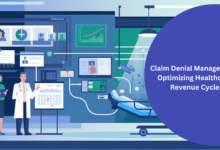The Importance of Software Testing and Quality Assurance in 2023

In today’s technology-driven world, software has become an integral part of our daily lives. From mobile applications to web-based platforms, software is used across industries and sectors. With the increasing complexity and sophistication of software, the importance of thorough testing and quality assurance has never been greater. In this article, we will explore why software testing and quality assurance are crucial in 2023 and how they contribute to the success of software development projects.
Software testing can be defined as the process of evaluating a software system or application to identify any defects, errors, or bugs. Quality assurance, on the other hand, focuses on ensuring that the software meets the specified requirements and quality standards. These two processes work hand in hand to deliver reliable, efficient, and user-friendly software solutions.
Read more: From Start to Finish: A Comprehensive Guide to Software Development Life Cycle in 2023
Ensuring Functionality and Reliability

One of the primary goals of software testing and quality assurance is to ensure that the software functions as intended and is reliable. Testing helps in identifying and rectifying any bugs or errors that may impact the performance or functionality of the software. By conducting comprehensive tests, developers can ensure that the software operates smoothly, minimizing the risk of crashes or malfunctions.
Enhancing User Experience
In the competitive software market, user experience plays a critical role in the success of a product. Software testing and quality assurance help in enhancing the user experience by ensuring usability and accessibility. Through user-centered testing methodologies, developers can gain valuable insights into how users interact with the software. This feedback helps in improving the software’s interface, navigation, and overall user experience.
Security and Data Protection
With the rise in cybersecurity threats and data breaches, security testing has become paramount in software development. Software testing helps in identifying vulnerabilities and weaknesses in the system that could potentially be exploited by malicious entities. By conducting rigorous security testing, developers can safeguard user data and ensure the software’s resilience against potential threats.
Maintaining Compatibility

In today’s multi-device and multi-platform landscape, software needs to be compatible across different devices, operating systems, and browsers. Compatibility testing ensures that the software functions seamlessly on various platforms, delivering a consistent user experience. By identifying and addressing compatibility issues during testing, developers can minimize user frustrations and ensure broader market reach.
Cost and Time Efficiency
The early detection and resolution of software issues significantly contribute to cost and time efficiency. Identifying and fixing bugs during the development phase is far more cost-effective than addressing them post-release. Software testing helps in uncovering potential issues early, reducing the need for rework and saving both time and resources. It enables developers to deliver high-quality software within the stipulated timelines and budgets.
Reputation and Customer Satisfaction

Software quality directly impacts the reputation of a company or organization. In today’s highly competitive market, customers have high expectations for software performance and reliability. A poorly tested or buggy software product can lead to customer dissatisfaction, negative reviews, and even loss of business opportunities.
On the other hand, when software is thoroughly tested and meets the highest quality standards, it enhances customer satisfaction. Reliable and user-friendly software builds trust and loyalty among users, increasing the likelihood of positive feedback, referrals, and repeat business.
Industry Standards and Compliance
Compliance with industry standards and regulations is crucial for software development, especially in sectors such as healthcare, finance, and government. Software testing and quality assurance help ensure that the software meets all the necessary compliance requirements. By adhering to industry standards, developers can avoid legal and financial consequences, maintain data integrity and privacy, and establish themselves as trustworthy providers.
Agile Development and Continuous Improvement
In the dynamic landscape of software development, the agile methodology has gained significant popularity. Agile emphasizes iterative development, continuous feedback, and collaboration between cross-functional teams. Software testing and quality assurance play a vital role in agile development by integrating testing activities throughout the development process.
By conducting regular tests and gathering feedback, developers can identify areas for improvement and implement necessary changes promptly. This iterative approach allows for continuous improvement, ensuring that the software meets evolving user needs and remains competitive in the market.
Read more: 5 Advantage Test Environments Support Your Software
Conclusion
In 2023 and beyond, software testing and quality assurance continue to be essential components of successful software development projects. Through comprehensive testing, developers can ensure the functionality, reliability, and security of software applications. User experience, compatibility, and cost efficiency are other crucial aspects addressed by testing and quality assurance.
Furthermore, the reputation and customer satisfaction derived from high-quality software contribute to the long-term success of organizations. Adhering to industry standards and regulations, as well as embracing agile development practices, further enhance the value of software testing and quality assurance.
By prioritizing these aspects and integrating testing throughout the development lifecycle, organizations can deliver software solutions that meet user expectations, drive customer satisfaction, and withstand the challenges of a rapidly evolving technological landscape.
FAQs
Why is software testing important? Software testing is vital because it helps identify defects and errors in software, ensuring its functionality, reliability, and security. It plays a crucial role in delivering high-quality software that meets user expectations.
What is the role of quality assurance in software development? Quality assurance focuses on ensuring that software meets the specified requirements and quality standards. It involves setting up processes, conducting audits, and implementing measures to maintain and improve software quality.
How does software testing contribute to cost and time efficiency? Software testing helps in early detection and resolution of issues, reducing the need for expensive rework and saving time and resources. By uncovering and fixing bugs during the development phase, costs and timelines are optimized.
What is the impact of software quality on customer satisfaction? High-quality software enhances customer satisfaction by delivering a reliable, user-friendly experience. It builds trust, increases positive feedback, and encourages repeat business, contributing to customer loyalty and retention.
How does software testing address security concerns? Security testing identifies vulnerabilities and weaknesses in software, helping to protect user data and prevent potential security breaches. It ensures the resilience and integrity of software systems against malicious threats.











